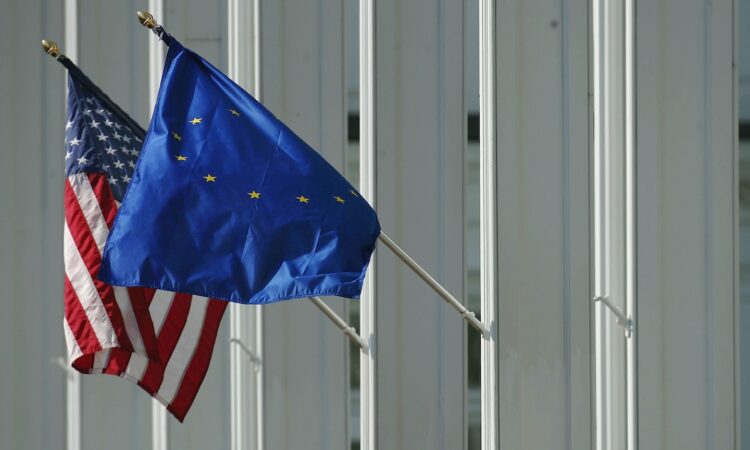
1. What’s triggered the subsidy race?
The US Inflation Reduction Act offers tax credits and other incentives for the production of electric vehicles, renewable energy, sustainable aviation fuel and hydrogen. Solar and other green industries are creating thousands of US jobs as the economy recovers from the pandemic, and a solid economy would help Biden if he seeks reelection in 2024. Policymakers in Europe, Japan and South Korea worry that the law could lure investment to the US that might otherwise flow to their regions.
2. What happens in a subsidy war?
When deep-pocketed governments attempt to outspend each other to produce national champions, companies in small and developing economies are usually impacted the most because their governments can’t muster the same scale of funding. The race to prop up industries can also lead to political dysfunction and tit-for-tat trade measures that raise costs for companies and consumers. One of the best examples of a subsidy war is the multi-decade US-EU dispute over support for aircraft makers Boeing Co. and Airbus SE that led to tariffs on tens of billions of dollars worth of trade in 2019.
3. How did US allies react to Biden’s plan?
Japan’s government said the US measures were “discriminatory” and could make its giant automakers more hesitant to invest in the US shift to EVs. South Korea’s Hyundai Motor Co. and its affiliate Kia Corp. said the law puts them at a disadvantage because they don’t have any EV plants in the US yet, though they soon will. The loudest complaints came from Europe, however.
4. What were the EU’s main objections?
The European Commission, which handles international trade matters on behalf of the EU’s 27 member states, said the US measures include local content, production and assembly requirements that discriminate against non-US companies. Specifically, the law offers consumers a $7,500 tax credit for electric vehicles as long as 40% of raw materials in their batteries are extracted and processed in the US or in countries that have a free-trade agreement with the US. That means US partners such as Canada and Mexico are exempt from the law’s content restrictions, while other foreign car producers are not.
5. What did the EU do next?
It hit back with its own raft of subsidies and tax breaks. The Net Zero Industry Act aims to spur the investments required to meet at least 40% of the EU’s “clean technology” needs from within the bloc’s own borders by the end of the decade. The hope is that companies will prioritize manufacturing in Europe and resist the lure of Biden’s tax breaks.
6. Could this evolve into a trade war?
That looks unlikely. A trade war would go beyond subsidies to impose barriers on imports of goods from competing nations. Biden has sought to dial down the tension, acknowledging the US law has some “glitches” and that there’s room for tweaks to make it easier for European countries to participate. There were signs the two sides were trying to find some common ground: The US and EU were in talks to develop a mechanism to avoid disputes over green subsidies, called the Clean Energy Incentives Dialogue. Parallel discussions around joint procurement of metals used in EVs may allow European companies to benefit from some of the US measures.
7. How is this fight related to China?
China has displaced Europe, Japan and the US as the top manufacturer of key climate change technologies and inputs like solar panels and rare earth minerals and magnets, which are used in car batteries, power generators and hydrogen storage equipment. Much of that progress is thanks to generous state support for Chinese industry. Biden’s law and the EU’s net-zero act are partially a response to that government largesse. Their aim is to redirect global supply chains for clean-energy products away from China so that Beijing can’t abuse its dominant position in some key raw materials. This would be a radical shift for the EU especially, as it relies on China for 98% of its rare-earth minerals and magnets.
More stories like this are available on bloomberg.com






